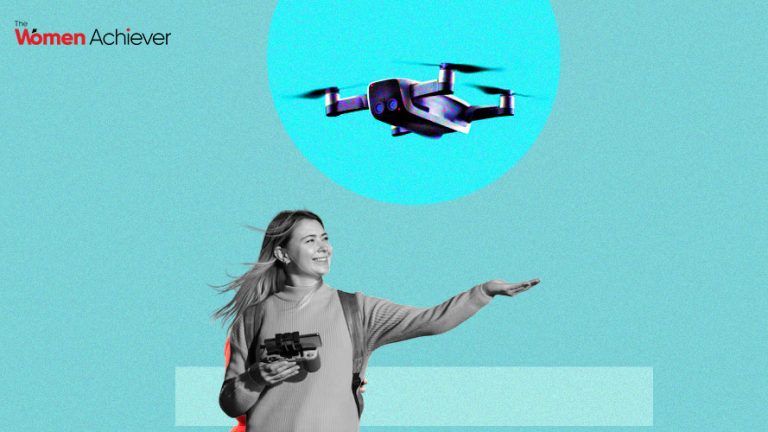Women in drone technology and autonomous system are revolutionizing the tech industry
The autonomous systems and drone technology fields, which have historically been dominated by men, are undergoing a major shift as more women in tech find their place in this fast-paced industry. This transition represents a significant shift in the development, application, and conceptualization of drone technology rather than only being a question of statistical variety.
Long-standing prejudices are challenged by the distinctive perspectives, creativity, and invention that women in drone technology contribute to the area, which is changing the autonomous systems and drone technology scene. The contributions made by tech women in this subject are discussed in depth in this article, along with their roles, difficulties, and influence in a field that was previously controlled by men.
Redefining the Skies: Women’s Contributions to Drone Technology
Not merely participants, women in drone technology are inventors and trailblazers. They are involved in many different capacities, such as engineering, piloting, entrepreneurship, and policy-making. The growing number of female drone operators is one notable example; these individuals are not only utilizing drones for fun but are also at the forefront of applying this technology to disaster relief, wildlife protection, and humanitarian assistance.
Drone technology is being advanced by women scientists and engineers working in research and development. Drones are being developed with the goal of increasing their efficiency, autonomy, and adaptability to a variety of settings and uses. This endeavour involves the development of more advanced data analysis tools, improved navigation systems, and better sensors.
Entrepreneurship and Leadership
Additionally, women are making great progress in the drone technology startup space. They are leading cutting-edge drone technology businesses and launching start-ups. These companies are interested in applying drone technology to solve practical issues as well as technical ones. For example, female-run drone businesses are actively engaged in industries such as agriculture, where drones are being used for crop surveillance, and logistics, where they are transforming delivery methods.
Challenges and Overcoming Stereotypes
Women in drone technology still face a number of obstacles in spite of these developments. A major barrier is the gender stereotype that says STEM (science, technology, engineering, and mathematics) is a field dominated by men. For young girls and women who want to work in this industry, this stereotype may be demoralizing. In addition, women frequently encounter a dearth of mentors and role models in the drone technology industry, which makes navigating their professional pathways difficult.
To address these issues, nevertheless, a lot of initiatives are being tried. Communities and organizations devoted to advancing women in drone technology are growing. In order to encourage more women to pursue and succeed in this industry, these platforms offer resources, mentorship, and networking opportunities.
Impact and Future Prospects
In the fields of autonomous systems and drone technology, women have a significant impact. Their participation is resulting in more creative and varied drone technology applications. Drones are being utilized, for example, not just for military and surveillance but also for environmental monitoring, healthcare, and urban planning, demonstrating the variety of uses made possible by different viewpoints.
It is anticipated that women will play an even bigger role in this profession in the future. There will be a growing need for a variety of skills and creative solutions as technology advances and drone uses grow, which women are uniquely qualified to offer.
Conclusion
A good indicator of diversity and advancement in the tech industry is the increasing number of women working in autonomous systems and drone technologies. In addition to improving the field’s technological capabilities, their contributions guarantee that drone technology is applied in more innovative, morally sound, and significant ways. Drone technology will likely become more inventive, inclusive, and receptive to societal demands in the future as more women enter and hold leadership roles in this domain.






Add comment